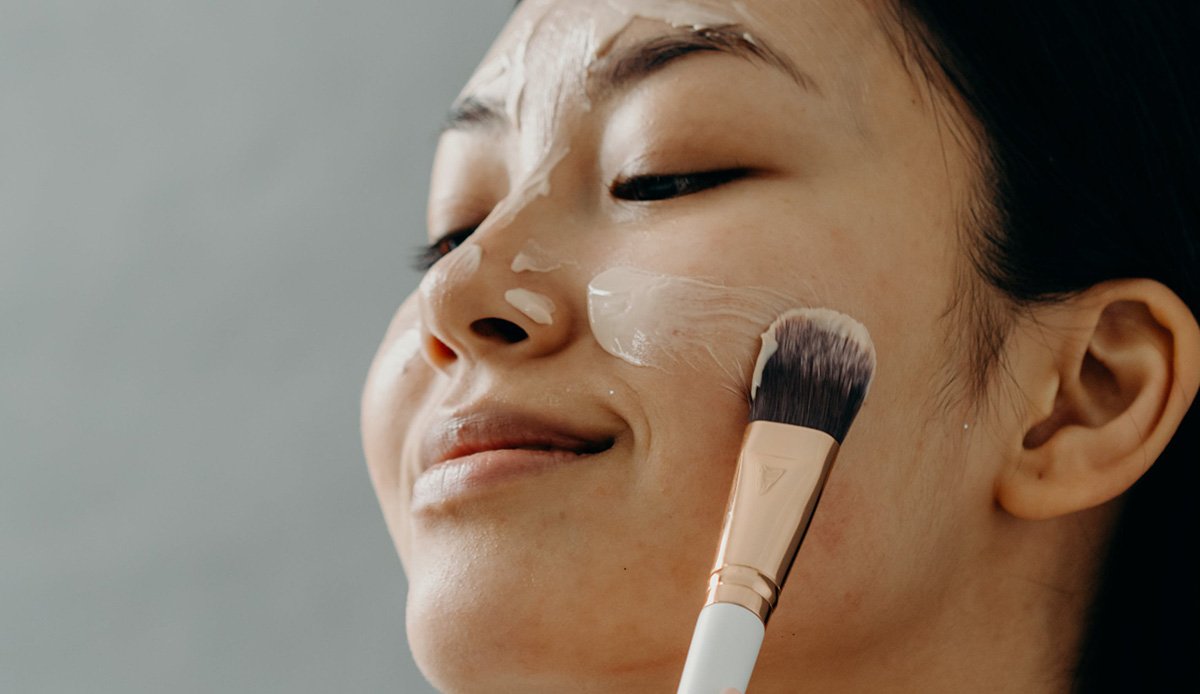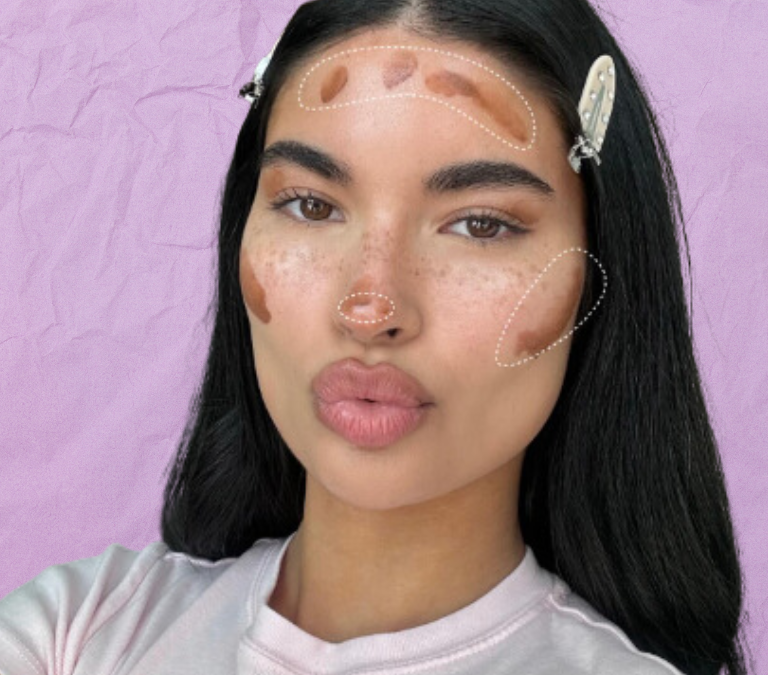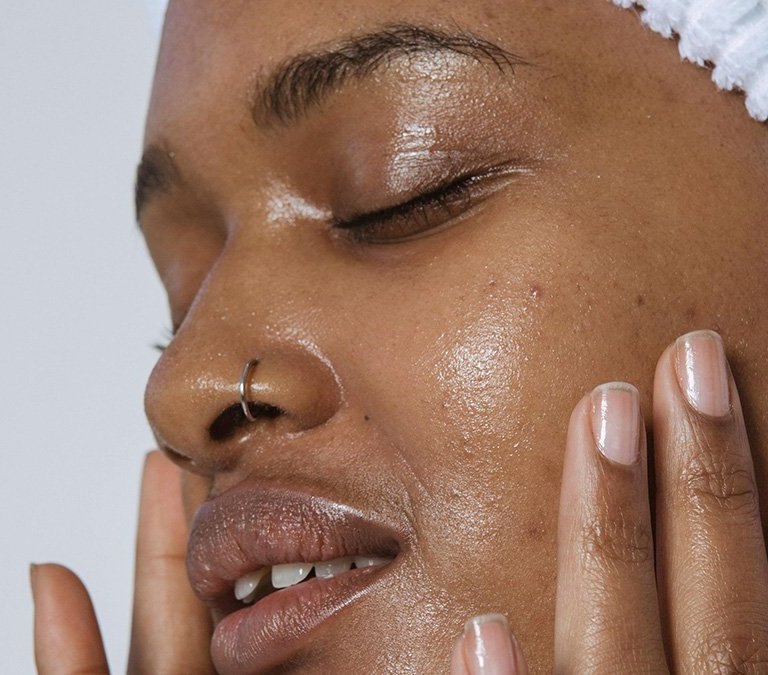
If you have ever had a skin lesion, such as a pimple, a mosquito bite, or a wound, you may have noticed that after a few days, it turns into a dark spot on the skin. This is known as post-inflammatory hyperpigmentation (PIH). So, let’s discuss why it occurs, how to prevent it, and how to treat it with skincare products.
[SEE ALSO: What Are Ceramides And Why Are They Essential In Your Skincare Routine?]
Why Does It Occur?
In normal conditions, melanin is the pigment that is responsible for the skin tone. It is produced by melanocytes which are skin cells that live in the deepest part of your skin. If we get really into the science, inside melanocytes, there’s an enzyme called tyrosinase that determines how fast melanin (pigment) is produced. Uneven skin tone, melasma, and pigmentation problems are all linked to a high activity of tyrosinase enzyme and therefore melanin production.
Post-inflammatory hyperpigmentation (PIH) is a type of skin pigmentation that is mainly triggered by the way the skin regenerates after inflammation or injury. With inflammation, there is a release of several molecules that will alert the immune system to protect your skin from infections or external aggressors. However, these same molecules stimulate melanocytes into producing a higher amount of pigment melanin as a way to protect your skin cells.
While it can affect all skin types, it is more common among people with skin of color. It can affect the face and body and will often appear as dark spots that vary in color from pink to red, brown, or black, depending on skin tone and depth of hyperpigmentation.
How To Prevent PIH?
PIH results from skin injuries such as cuts, wounds, burns, and even cosmetic procedures such as dermabrasion, chemical peels, and laser therapy. Also, some diseases are very common causes of PIH in skin color, including acne, allergies, and atopic dermatitis. This means, preventing any type of injury to the skin as much as possible is crucial!
Also, although it is not the cause of PIH, sun exposure can aggravate symptoms, darkening dark spots and prolonging the time it may take for them to disappear. The sun is closely related to other forms of hyperpigmentation, so don’t forget to apply sunscreen of at least 30 SPF, wear protective clothes, limit the time you spend in the sun, and stay out of the sun during its most intense hours.
Skincare That Can Help
Pigmentation issues can be some of the most persistent and challenging skin concerns to address and achieving significant results often requires a combination of active ingredients and consistent effort. That said, hard work pays off, so here are some ingredients you want to try to combat this stubborn issue.
Antioxidants
Your daytime routine should focus on damage prevention, with two key products: antioxidant serum and daily sunscreen. L-ascorbic acid is the gold standard antioxidant but if it irritates your skin, consider alternative ingredients such as niacinamide, silymarin, resveratrol, or magnesium ascorbic phosphate.
Anti-Pigment Agents
Some cosmetics ingredients have been shown to reduce melanin production by inhibiting tyrosinase enzyme activity inside the melanocytes. Consider including either azelaic acid, tranexamic acid, arbutin, kojic acid, licorice root, thiamidol in your skincare routine. You can also find cosmetic products that include a combination of them.
Exfoliants
Another strategy that can help with PIH includes using chemical exfoliants to increase cell turnover, shed old skin, and fade dark spots faster. Glycolic acid or lactic acid are good options if your skin is quite resistant. Mandelic acid and polyhydroxy acids are better options if you have sensitive skin.
Have you ever suffered from PIH? Let us know in the comments below!



